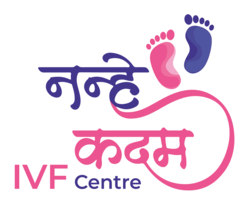IUI Treatment in Sirsa with high Success Rate

Achieve your dream of parenthood with advanced IUI treatment at Nanhe Kadam IVF Centre in Sirsa. Facing difficulties in conceiving can be emotionally challenging for couples who dream of starting a family. Fortunately, advancements in reproductive medicine offer various treatment options to help overcome infertility. Intrauterine Insemination (IUI) is one such popular fertility treatment that has brought hope to many couples. Here is a comprehensive overview of IUI, including its procedure, benefits, success rates, and considerations.
What is Intrauterine Insemination (IUI)?
Intrauterine Insemination (IUI), also known as artificial insemination, is a fertility treatment that involves placing specially prepared sperm directly into the uterus to increase the chances of fertilization. It is a relatively simple and minimally invasive procedure, making it a popular choice for couples facing various infertility challenges.
Who can benefit from IUI?
IUI treatment in Sirsa is often recommended for couples facing the following situations:
- Unexplained Infertility: When couples are unable to conceive despite undergoing a thorough fertility evaluation, IUI may be suggested as a possible treatment option.
- Mild Male Factor Infertility: In cases where the male partner has low sperm count, decreased motility, or minor abnormalities in sperm shape, IUI can bypass these obstacles and improve the chances of successful fertilization.
- Cervical Issues: Some women may have cervical mucus that is hostile to sperm, making it difficult for them to reach the egg. IUI bypasses the cervix and places the sperm directly into the uterus, increasing the chances of fertilization.
- Ovulation Disorders: IUI can be combined with ovulation induction medications to stimulate the release of multiple eggs, maximizing the chances of conception.
The IUI Procedure:
- Ovulation Monitoring: Before proceeding with IUI, the woman’s menstrual cycle will be closely monitored. This involves tracking the growth of follicles through ultrasound scans and assessing hormone levels through blood tests.
- Semen Sample Collection: The male partner will provide a semen sample on the day of the procedure. The sample is then processed in a laboratory to separate healthy, motile sperm from the seminal fluid.
- Sperm Preparation: The processed sperm is washed and concentrated to obtain a higher concentration of motile sperm.
- Insemination: The prepared sperm is carefully inserted into the uterus using a thin catheter. The procedure is usually painless and performed in a comfortable setting.
- Post-Procedure: Following the IUI procedure, the woman may be advised to rest for a short period before resuming normal activities. After approximately two weeks, a pregnancy test can determine if the treatment was successful.
Benefits of IUI:
- Non-Invasive: IUI treatment in Sirsa is a minimally invasive procedure that does not require surgery or anaesthesia, making it a comfortable option for many couples.
- Cost-Effective: Compared to more complex fertility treatments, IUI in Sirsa at Nanhe Kadam IVF Centre, is relatively more affordable, making it accessible to a wider range of individuals.
- Enhances Sperm’s Journey: By placing the sperm directly into the uterus, IUI bypasses potential barriers, such as cervical mucus, increasing the chances of sperm reaching the fallopian tubes to fertilize the egg.
Success Rates:
The success rates of IUI treatment can vary depending on several factors, including the underlying cause of infertility, the age of the woman, and the overall health of the couple. On average, the success rates range from 10% to 20% per cycle. It is important to remember that multiple cycles of IUI may be required to achieve pregnancy.
Considerations and Risks:
While IUI is generally a safe procedure, it is essential to consider potential risks and limitations associated with the treatment. These may include:
- Multiple Pregnancies: The use of ovulation induction medications during IUI can increase the chances of conceiving multiples, such as twins or triplets. Close monitoring and proper medication dosage can help minimize this risk.
- Infection: Although rare, there is a slight risk of infection associated with any medical procedure. Strict sterile techniques are followed during IUI to minimize this risk.
- Emotional Challenges: The journey through fertility treatments can be emotionally demanding for couples. It is important to have support systems in place and seek counselling if needed.
Conclusion:
Intrauterine Insemination (IUI) is a widely used fertility treatment that offers hope to couples facing infertility challenges. With its relatively simple procedure, affordability, and potential for success, IUI treatment in Sirsa has become a popular choice for many couples seeking to start a family. However, it is crucial to consult with a fertility specialist to determine if IUI is the right treatment option for your specific situation. Remember, each fertility journey is unique, and seeking support from medical professionals and loved ones can make the process more manageable.
